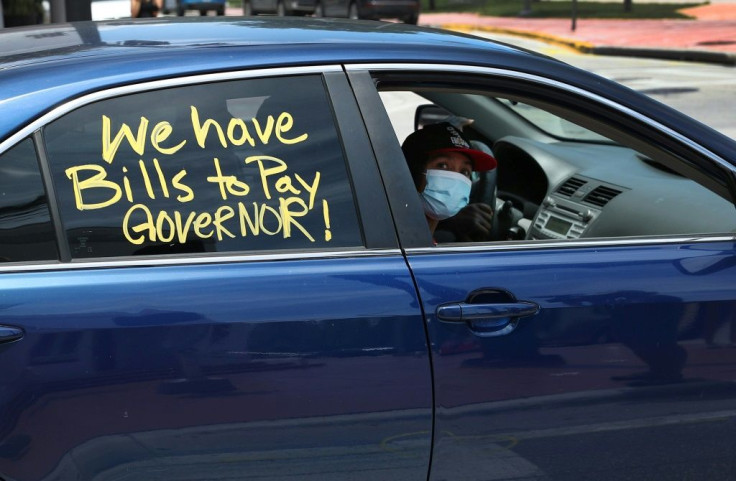As Covid-19 Cases Rise In US, Jobless Claims Follow
The United States saw a sharp increase in new filings for jobless benefits last week, a sign that the unemployment crisis could be intensifying again as the world's largest economy endures a surge in Covid-19 infections.
The worrying increase comes as lawmakers in Washington made a tentative restart to talks on enacting another stimulus spending measure, after extra payments to the unemployed and loans and grants to small businesses that helped the economy through the early months of the pandemic expired earlier this year.
The Labor Department on Thursday reported a seasonally adjusted 742,000 new claims for unemployment benefits filed in the week ended November 14, and 320,237 claims, not seasonally adjusted, made separately under a program for workers not normally eligible for jobless aid.
The worse-than-expected data marked the 35th straight week that new jobless claim applications have remained above the worst single week of the 2008-2010 global financial crisis, and analysts fear the latest increase is just the beginning.
"Given the trajectory of the pandemic, we may be stuck in the one million a week range of Americans claiming benefits (both state and federal) for some time, and we'll be lucky if that level doesn't rise by 100,000 to 200,000 additional claims per week," Robert Frick of Navy Federal Credit Union said in a note.
The US is home to the world's largest outbreak of Covid-19, which has accelerated in recent weeks.
The country saw 157,950 new infections over the 24 hours prior to Wednesday, the same day total deaths from the disease climbed above 250,000.
A senior Democratic aide confirmed to AFP that the staff to top congressional leaders was meeting to see if there was a way forward on passing a successor to the massive $2.2 trillion CARES Act passed in March.
That bill helped keep the economy afloat through the spring and summer but many of its provisions have since lapsed, and a study from The Century Foundation progressive think tank released Wednesday said nearly 12 million unemployed people will be relying on aid programs under the bill that expire on December 26.
President-elect Joe Biden on Thursday again reiterated his call for lawmakers to approve stimulus, warning states could cut services and layoff teachers, police officers and other public employees without it.
"The federal government has to deliver this relief sooner rather than later," Biden said.

But Republican Senate Majority Leader Mitch McConnell has thus far rejected the Democrats' latest proposal costing $2.2 trillion, preferring to approve smaller measures -- which Democrats say they have no interest in.
Some employers say they're already feeling the pain from the rise in cases.
Air carriers have been struggling amid a sharp fall in travel demand, and major airlines laid off 32,000 workers in October when CARES Act funds to keep staff on payroll expired.
On Thursday, United Airlines said it was seeing more travelers cancel plans and new bookings decline, projecting total capacity in the fourth quarter to decrease "at least" 55 percent compared with a year ago.
"The company does not currently expect the recovery from Covid-19 to follow a linear path," United said in a securities filing, adding it "continues to see a significant impact in demand for air travel."
In an interview with Bloomberg, Dallas Federal Reserve Bank President Robert Kaplan warned the renewed virus surge could cause another contraction in economic growth in the fourth quarter.
US growth cratered by a record 31.4 percent annualized in the second quarter as business shutdowns to stop the virus's spread took their toll, but rebounded 33.1 percent as states moved to ease the shutdowns.
However, the economic pain has not been distributed evenly, with some sectors booming amid the gloom. The National Association of Realtors on Thursday said existing home sales rose 4.3 percent month-on-month in October to their fastest seasonally adjusted annual rate since November 2005, thanks in part to the Federal Reserve's move to slash its borrowing rate to zero as the pandemic arrived.
The Philadelphia Federal Reserve reported more manufacturing firms seeing their activity increase than decrease this month, but its regional index for the sector declined by six points as new orders and shipments decreased.
"The absence of federal benefit subsidies and (small and medium enterprise) support threatens a resumed collapse in demand and a spiraling economic retreat in the months ahead," investment banker Dan Alpert said on Twitter.
"Protecting the economy is critical but so, too, is offering humanity to households entering this holiday season in despair."
© Copyright AFP {{Year}}. All rights reserved.





















